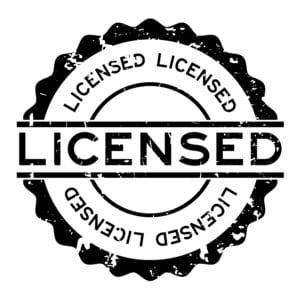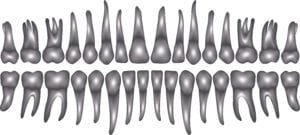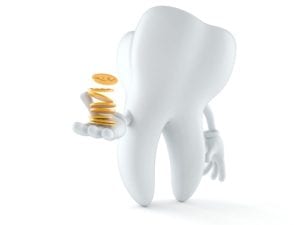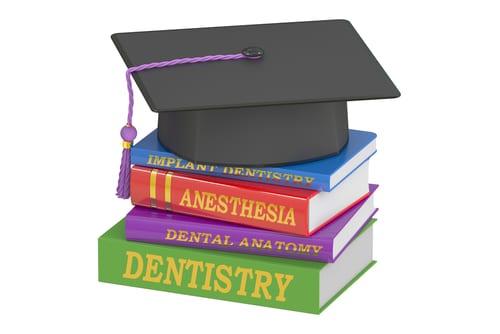A dental hygienist, also known as an oral hygienist, is a licensed and registered professional in the field of dentistry. While in the same field of discipline, dental hygienist performs more advanced and independent duties than a dentist. Be it in removing deposits or plaque or polishing teeth; dental hygienists are highly-trained to perform thorough and complex oral care, recommendations, and treatment.
Dental Hygienist as a Degree
Types of Dental Hygienist Degree Programs
Dental Hygienist Education: Online or Traditional?
Dental Hygienist Licensing Requirements
Dental Hygienist Course Descriptions
Dental Hygienist Careers and Salary Information
Dental Hygienist Schools, Degrees, and Rankings
A dental hygienist is expected to be proficient in the use of the latest industry tools and techniques, many of which are regularly updated and upgraded. Today, dental hygienists are trained to operate air-polishing utensils, dental charting software, periodontal devices, and advanced x-ray technologies, and state-of-the-art lasers.
Dental Hygienist as a Degree

If you plan to work as a dental hygienist, you need to earn a degree in the field. You need to obtain successfully pass entry-level programs and proceed with earning your associate’s degree, bachelor’s degree, or master’s degree in dental hygiene for more in-depth training. A master’s degree will require you to ace a written test and an oral examination, and proceed with obtaining a state-specific license.
For an associate’s degree, you can apply to your local community or technical college. There are also accredited schools online with enriching programs available. The American Dental Hygienists Association or ADHA says there are over 330 dental hygiene programs all over the United States.
Types of Dental Hygienist Degree Programs

Dental Hygienist education consists of three program types that are all accredited by the Commission on Dental Accreditation or CODA. Admission requirements vary with every school, and a solid background in chemistry, biology or health puts you at an advantage. On average, dental hygiene programs take three years to finish.
Dental Hygienist Degree Programs involve comprehensive and supervised patient care that is focused on clinical education. Basic science subjects like physiology, pathology and anatomy, clinical science subjects, and liberal arts are part of the Dental Hygienist program courses.
Dental Hygienist degree admission requirements include at least a year of college education in a related degree. There are also specific baccalaureate degree programs that require at least two years of prior education in a relevant field.
Generally, Dental Hygienist degree programs also require:
- High school diploma/GED
- 0 minimum high school GPA
- Mathematics, English, chemistry and biology courses
- College entrance examination scores
- College coursework in psychology, chemistry, sociology, speech, and English
Entry-level Dental Hygienist Programs
Usually available for enrollment in technical college, community college, or vocational institutions, Entry-level preparatory programs for dental hygiene require no background education. Many 4-year institutions affiliated with a dental school offer entry-level programs for dental hygiene education.
Entry-level programs are categorized into three levels:
- The entry-level Associate degree requires 84 credits and takes two years to complete, such as the Associate of Applied Science in Dental Hygiene. Primary coursework includes Dental Radiography, Dental Hygiene (Clinical), Oral Pathology, Dental Anatomy, and Prevention of Oral Disease.
- An entry-level Baccalaureate degree requires 120 credits and takes four years to complete.
- Entry-level Post-Baccalaureate degree programs welcome students that have obtained a baccalaureate degree other than one from a Dental Hygiene program. It is also for students who want to pursue a degree in Dental Hygiene degree formally.
Entry-level graduates of CODA-accredited Dental Hygiene programs are qualified to take licensing exams and proceed to clinical practice.
Bachelor’s/Baccalaureate Degree (BDH)
The Bachelor’s Degree in Dental Hygiene program is designed for licensed dental hygienists as well as students who have obtained an associate degree or certificate in Dental Hygiene or completed an entry-level program. A bachelor’s degree in this discipline, which is also offered online, leads to career opportunities in public health, administration, education, and sales. The program curriculum educates and trains students in the areas of research, instruction, and clinical site practice. Courses include advanced clinical concepts and contemporary dental hygienist principles. There are also internship requirements.
Master’s Degree (MDH)
Students with a Master’s Degree in Dental Hygiene—such as Master of Education in Public Health, Master of Science (MSc), Master of Applied Science (MASc)—usually become researchers, professors, and experts in the legal or ethical facets of the dental hygienist practice.
An MDH takes two years to complete, after which you must obtain your license. Dental Hygienists who are Master’s Degree holders are scarce, and only a handful of universities offer the MDH program.
Dental Hygienist Education: Online or Traditional?

There are many bachelor’s degree programs in dental hygiene online, which you can choose to enroll in full-time or part-time. The courses offered are thorough, instructional, in virtual software format. What’s great is you can engage with other students enrolled in the program through the message boards, take quizzes, and get access to your course materials as easily as you would on-campus.
Many professionals and adult learners choose 100% online programs in Dental Hygiene because the arrangement lets them obtain the education they need to start or elevate their careers at their own pace.
Traditional Dental Hygienist education or degree be obtained in dental schools, community colleges, vocational and trade schools, or traditional colleges and universities. They offer a range of certificates, training, and degree programs to suit students’ requirements for practice as dental hygienists.
Dental Hygienist programs in community colleges focus on community health, patient care, and oral health to prepare students for licensing after completion. Vocation schools are ideal if you want fast-track education, as practical and hands-on training programs take only 17 months. Four-year dental hygienist degrees in universities involve advanced Dental Hygiene subjects and include master’s degree options. The programs usually also include also practical work such as clinical rotations or volunteering.
Dental Hygienist Licensing Requirements

Licensing requirements to be a practicing dental hygienist for every state varies. They must also complete CODA-accredited programs. They need to pass the National Board Dental Hygiene Examination that ultimately determines whether or not their knowledge and skills are fit for practice. There are also state licensing requirements that practitioners need to comply with. Successful passers Registered Dental Hygienist.
In summary, the degree or certification and licensing requirements for practice generally include:
- CDA-accredited program diploma
- National Board Dental Hygiene Examination passing score
- State/regional clinical board examination passing score
Dental Hygienist Course Descriptions

Dental Hygienist courses provide the foundation knowledge and skills required for practice. Typically, classes focus on giving an overview of the discipline and tackle dental hygiene theory and practice.
The Theory and Practice course focus on equipment, sanitation, and infection control and procedures in the dental hygienist profession. It also entails lecture sessions and laboratory work.
The Oral Physiology and Anatomy courses involve an in-depth study of the anatomy and physiology of the oral cavity. In the Oral Pathology course, students are tasked to research oral cavity diseases, symptoms, and preventive measures. Students also learn about patient diagnosis and methods for treating oral cavity diseases.
The Periodontal course involves discussions on the periodontal structure, infections, and diseases. This dental hygienist course requires plenty of laboratory work, and subjects are often paired with anesthesia and dental nutrition topics.
Dental Hygienist Careers and Salary Information

Whether it’s a general dental procedure, tartar removal, or sealant application, Registered Dental Hygienists are the ruling classes in oral care. This profession requires not only an excellent quality of education; an RDH’s communication, empathy, and time management skills are also put to the test.
Below are the popular careers in dental hygiene:
- Dental Hygiene Educator – Average salary: $49, 931
- Public Health Administrator – Average salary: $62,246
- Pediatric Dental Hygienist -Average salary: $72,330
- Periodontal Dental Hygienist – Average salary: $72,330
Data from the U.S. Bureau of Labor Statistics show that the median pay of a dental hygienist is $74,070, and 207,900 positions filled in 2016. By 2020, there will already be 37,400 dental hygienists registered nationwide, as demand for the profession is quickly escalating at an average of 19% per year.
Dental Hygienist Schools, Degrees, and Rankings

For more information, visit our rankings featuring Dental Hygienist programs and schools:
Top Online Bachelor of Dental Hygiene Degree Programs for 2018